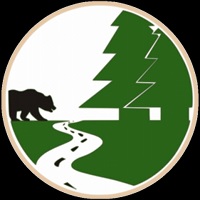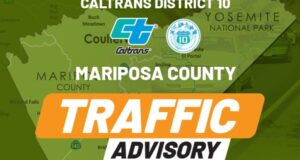COUNTY – Wildlife vs. vehicle collisions are a threat to wildlife and public safety throughout the world, including in our highly-valued national parks, and mountain drivers are sadly familiar with seeing animals that have been hit by cars on Highway 41.
Now, through the efforts of local conservationists, researchers and agencies, those roadkill sightings between Oakhurst and Yosemite can be reported to a website database set up to collect information and develop ways to help prevent wildlife-vehicle collisions in the future.
Concerns about wildlife roadkill issues along Highway 41 into Yosemite have brought together a group including UC Davis Road Ecology Center, U.S. Forest Service, Yosemite National Park, and Defenders of Wildlife. Together, they will co-host a webinar to discuss their collaborative project aimed at reducing wildlife-vehicle collisions in the greater Yosemite region.
The webinar is on Thursday, Apr. 2 at 4 p.m., and will cover innovations to bring down the number of wildlife-vehicle collisions and improve road safety, including the use of a website developed at UC Davis to collect roadkill information. Organizers want to involve the public in reporting any animals seen dead along Highway 41 from Oakhurst into Yosemite National Park.
“The Sierra National Forest is proud to work with such a diverse group of partners to reduce wildlife-vehicle collisions,” says Anaé Otto, U.S. Forest Service. “This webinar will engage local citizen scientists in wildlife habitat management efforts.”
The website is reportedly simple to use. Organizers request the public only report roadkill that can be easily identified just driving by on Highway 41. They caution that the highway is extremely busy with traffic and they do not encourage inspections of roadkill on foot.
During the webinar, the groups will give a brief overview of road ecology and wildlife/highway interactions, share information about and take a virtual tour of the California Roadkill Observation System (CROS), and encourage interested participants to become familiar with CROS and begin submitting their own observations to the database.
The data obtained through these efforts will increase understanding of which particular wildlife species are most often hit by vehicles and where these accidents occur. The data collected will enable the working group to propose strategies to reduce collision types and sites, making area roadways safer for people and wildlife. The webinar will be followed by an in-person training that all webinar participants are encouraged to attend.
Defenders of Wildlife spokesperson Pamela Flick says the group is excited to offer the chance for local residents to get involved in the effort to make roads safer for people and wildlife alike.
“Projects like this encourage coexistence with our treasured wildlife,” says Flick, “and provide important opportunities for representatives from government agencies, academia and non-governmental organizations to work together toward a common goal.”
UC Davis Road Ecology Center says the development of CROS has been a team effort involving hundreds of volunteers throughout the state.
“As we move forward, public involvement will be critical for successfully reducing wildlife collisions,” stresses Dr. Shilling.
For webinar link and more information please RSVP to Haley Stewart; hstewart@defenders.org (916) 442-5780 For more information, visit www.defenders.org.



